Meet Rafael Who Just Launched a Ripple Gateway in Brazil

The “Most Interesting Man in the World” prefers wine. He’s also a Brazilian Ripple gateway operator.
Going by the well-known marketing campaign, you might be inclined to believe that the Most-Interesting-Man-in-World is Mexican—given the beer that he drinks.
But I recently confirmed that he is indeed Brazilian. Rafael Olaio is the co-founder of Rippex, a newly launched Ripple gateway that services Brazilian residents. Rippex is “the fastest, cheapest way to buy Bitcoin in Brazil,” Olaio said, adding that it is still difficult and expensive for individuals there to acquire not only bitcoins but also diversified investments like gold and foreign currencies.
In the longer run, Olaio believes these developing technologies will further empower the people of Brazil by allowing them more control over their finances. It’s also an opportunity for merchants, who are known to pay north of 7 percent per transaction when accepting credit card payments while taxi drivers regularly pay 9 or 10 percent.
For the São Paulo native, arriving at this juncture has been a long and adventurous journey. Prior to dedicating himself full-time to his Ripple enterprise, Olaio was a doctor, having attended one of the most prestigious medical programs in Brazil. And before that, he was a videographer for an advertising firm.
The craziest part? He’s only 39, and he’s only just getting started.
Rafael: That’s kind of a choice. What is better? To live with having tried or having not tried? It’s not like it’s easy or comfortable to make these decisions—but not making it is also uncomfortable. So you are in a bad situation when you get passionate about one idea—in this case, it was Ripple.
Ripple Labs: OK, well let’s start from the beginning. How did you get into advertising?
Rafael: The advertising was a natural continuation of what I was doing in high school, where I already did some jobs in advertising, and I was responsible for creating a few campaigns with my colleagues. After working some years, I moved into video editing and producing videos.
Ripple Labs: Which is already pretty cool…
Rafael: But I felt something wasn’t right. Time is very precious. I was fighting for things I didn’t really believe in. I always use this example—this time when we were in a meeting for the latest campaign. We were using all our energy to figure out how to get people who didn’t have a need for batteries to buy more batteries. How would we create this need for people?
The idea we came up with was to give them radios. It just didn’t feel like we were adding real value for all this energy we were putting into these efforts. Of course, I was obeying someone else, a client or a boss. It was the value for me to pay my bills. But I still felt like I needed to do something about it. I felt like I needed something more.
Ripple Labs: So you became a doctor…
Rafael: I thought about it for some months, and medicine was the only thing that spoke to me more deeply. I just asked myself—what kind of thing should I do? When I thought about medicine, I felt, deep down, like the answer was a resounding “yes.”
After studying a year and a half, I got into university, a very good program here in Brazil, which took six years. After I finished school, I worked full-time for three years.
Ripple Labs: So you studied for six years, and then only worked full-time for half that time as a doctor…
Rafael: I’ll tell you why. You know, medicine is very interesting. It’s a very interesting subject—and dealing with people is very interesting. And it’s good for me as a person, I think.
But the economics for practicing quality medicine in Brazil can be very difficult. This got me interested in economics in general, and I began to study broad overviews of economics in my spare time. I got interested in security analysis—evaluating businesses and papers and commitments. This was all incredibly interesting, it really caught me. I read many books to discover how things work—essentially the rules and theory that define what moves the world.
What are the laws that rule these relationships between people and businesses and economies? There are many things that are not personal—things just happen. So studying economics led me to security analysis. It felt like there was a little bit of science there. And security analysis would lead me to Bitcoin.
Ripple Labs: How did you hear about Bitcoin?
Rafael: At the time, it was beginning to appear in the media. I was reading some news feed, and I saw an article about Bitcoin, this new currency. When I began to read, I realized that this would be the beginning of a great change in economics, in life in general. We had opened Pandora’s box. There was no going back now.
So then I chose Bitcoin to make some investments. I also did some trading, taking advantage of arbitrage opportunities between exchanges. This was around March last year.
Ripple Labs: Was it difficult acquiring bitcoins in Brazil at the time?
Rafael: It was very difficult, almost impossible. The only exchange that was working here was managed in a very amateur way. It was allegedly hacked—but many people accused the operator of stealing the bitcoins. And so there were no options here in Brazil to buy bitcoins—except for LocalBitcoins, which was very expensive.
If I recall correctly, I ended up managing to buy some bitcoins via BitInstant. I began sending them to MtGox and Bitstamp and moving the fiat money from one place to another to take advantage of trading opportunities. This was a common strategy at the time.
As it turned out, Bitstamp was a Ripple gateway, and that was how I found out about Ripple.
Ripple Labs: What was your initial impression?
Rafael: I thought it was a very good vision because it allowed people to issue other assets in the network. So many of the problems at the time that were inherent to the Bitcoin network would be solved—like moving fiat money. The fact that the transactions were confirmed in seconds was very very impressive.
Ripple Labs: So how did you go from Ripple newbie to bonafide Ripple entrepreneur?
Rafael: There were some existing business models at the time, like the gateway model, which I think is very important for the ecosystem. They’re like the roots of Ripple, connecting it to other existing networks.
So I thought about this for a while since it was very risky—based on a protocol that I wasn’t too familiar with yet and few people knew about at the time. There was also uncertainty surrounding regulations.
But the idea was interesting. It’s very innovative, and I think this technology will really change the financial system. You can’t put it aside—unless you invent something better. You just can’t ignore this.
Take Fidor, for example, the German bank that is implementing the Ripple protocol. It will spend less money and be more competitive. Then, if Fidor’s competitors don’t use Ripple or don’t have something similar, it will be harder for them to compete.
Regarding our business model for Rippex, I think the gateway or conversion service will become a commodity at some point—but it will be a commodity you can’t live without.
Ripple Labs: At what point did the idea become a reality?
Rafael: When I got the right team. I started talking to people about the idea, and many people thought it was interesting. Then I got one friend of mine to join, and then I met our developer and explained the project to him. I met with many developers, but he was the only one I invited to be a co-founder.
With the founding members rounded up, we created the principals of the company and divided our tasks. This was around October or November of last year.
Ripple Labs: It’s been quite some time building up to your launch. What have you been working on since then?
Rafael: There was a lot of preliminary work to do. We had to work out the math and the accounts, to calculate the risks, and figure out how much money and initial investment we would need.
So we did a lot of brainstorming and built out a model to start this project. As is generally the case, this model has already been changed many times along the way.
Ripple Labs: What sort of questions were you asking during these brainstorming sessions?
Rafael: We wanted to figure out how we can help people solve real problems in their day-to-day lives. Because why would someone use Ripple if they have their banks and credit cards, for example.
That’s why we decided to start by targeting Bitcoin traders—given the price premium of Bitcoin here in Brazil. They are already making a profit by making markets in the current environment. Our Ripple gateway will allow them to be faster, more competitive, and increase their margins.
Ripple Labs: What’s the Bitcoin market like in Brazil?
Rippex: The market here is small when compared to Europe or the US. But I’ve been talking to people here, and I think last month, one of the exchanges moved $ 1 million if you count only the fiat transactions. A year ago, that number was around $ 15,000—so we think the timing is good right now.
Ripple Labs: Do you think these developments will translate positively for average people in Brazil?
Rafael: This kind of economy will empower more people. Things are becoming more decentralized, peer-to-peer. This I think will help people have more control of their finances, and people will be more educated financially because they will assume more responsibilities.
The alternative people used to have was to keep money or gold at their homes and this is very risky. Banks help address that by diminishing those risks for people. But now you can have your assets kept offline in a cryptographic key that only you know. You can even split the secret up among different signers—there are many ways to deal with it.
And empowering people will create a demand for better regulations. Hopefully we will have a system that is more open because people will have options. In a way, this is positive for banks, which can provide different and better services to fulfill their customers’ needs. Maybe a Bitcoin fan will want to keep his or her bitcoins safe, but doesn’t want to personally assume all of the associated risks. So banks will be able to address some of these demands.
Ripple Labs: That’s a great point.
Rafael: The payments piece is also very important, and everyone can benefit from it, especially merchants. Right now users have their credit cards, but merchants in Brazil don’t always like for their users to use credit cards. It’s expensive and there are lots of risks, like chargebacks. Because of that, you only know for sure if you have received the money in 30 or 60 days after the purchase is first made. So this is more expensive and risky than just accepting a cash payment.
Here in Brazil, they have these point-of-sale machines for addressing this issue. Companies that provide these services will charge as much as 6 percent of the purchase price so that the merchant can get their money a bit earlier versus relying on Visa alone. They essentially form an intermediary credit operation, which adds to the cost of normal business. So in total, merchants are paying north of 6 or 7 percent to process transactions. For taxi drivers, this figure can reach 9 or 10 percent.
While this cost isn’t explicitly advertised in the price of goods, it increases costs for everyone, from the merchant to the consumer. In fact, consumers can easily discern these implicit costs because many merchants offer discounts for other payment options—like cash or something called “boleto”—which is a payment method commonly used here in Brazil. It’s similar to a bank transfer so it acts a bit like cash.
So you commonly see these price disparities with e-commerce. When you are purchasing a chair, there are two prices—one is for credit cards, the other is for boleto.
Ripple Labs: Are merchants in Brazil adopting Bitcoin? We’re seeing that here in the US with Dell and Overstock, for instance.
Rafael: There are people trying to implement payment solutions for Bitcoin here. But I don’t think BitPay or Coinbase are operating in Brazil.
Ripple Labs: Why do you think the crypto-movement hasn’t caught on as much in Brazil? Is it an issue of education and familiarity with the technology?
Rafael: I think education is part of it. If you are not a little technologically educated, this can all sound like something crazy.
Ripple Labs: And certainly, it doesn’t help that it’s still difficult to acquire bitcoins in Brazil. But you believe Rippex will help address this problem.
Rafael: Yes, we are converters. We want to remove that friction. We want to make it easier to put money inside and outside of the Ripple network.
The other thing is, here in Brazil, it’s kind of cumbersome for someone who doesn’t have a lot of money to diversify their investments. So it’s hard to buy gold and invest in foreign currencies. You have to have like a $ 5000 minimum to put in one fund for hedging USD, for example. Now, with just $ 500, you can buy USD, euros, and gold through the Ripple network.
Ripple Labs: One of the stumbling blocks in the US and other places is for new startups to secure a banking relationship because of how new these technologies are. Has that been a problem?
Rafael: It was very easy. I have three different accounts in three different banks. I repeated myself many times to be sure that they really understood.
Ripple Labs: Out of curiosity, how do you describe the technology—and maybe not just to banks but to the general public?
Rafael: I describe it the same was that [Ripple co-founder and CEO] Chris Larsen does. It’s the internet of value. I think it’s very important because there’s a lot of friction in moving money, and the main problem is trust.
Whenever you receive a bill, you have to make sure that it’s not counterfeit. Whenever you receive a bank transfer, you must be sure it will not be charged back. Whenever you receive a credit card payment, you have issues with not only chargebacks but also delayed transactions and high costs.
So this technology, Ripple, by solving the settlement part of transactions brings a lot of speed and removes a lot of risk and friction from the equation. These advantages ultimately benefit everyone.
Ripple Labs: OK, so I have to ask—what kind of beer do you drink?
Rafael: I like wine [laughing].

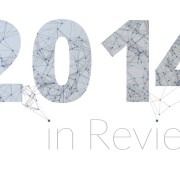
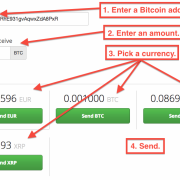
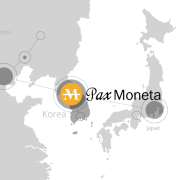

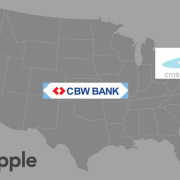
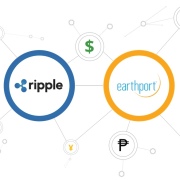

Hinterlasse einen Kommentar
An der Diskussion beteiligen?Hinterlasse uns deinen Kommentar!